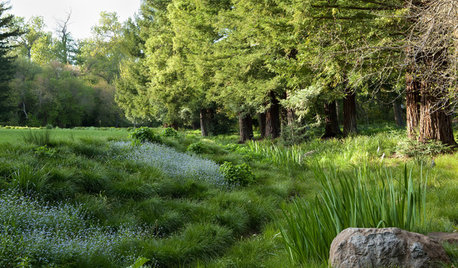'Finally Price their water properly????'
ion_source_guy
14 years ago
Related Stories

HOUSEKEEPINGTackle Home Junk With Proper Disposal
No matter how well you scrub, your home will never be spotless until the junk disappears. Here's how to lose it with a clean conscience
Full Story
ARTLet's Put a Price on Art: Your Guide to Art Costs and Buying
We paint you a picture of what affects an artwork's price — plus a little-known way to take home what you love when it's beyond your budget
Full Story
HOUSEKEEPINGDishwasher vs. Hand-Washing Debate Finally Solved — Sort Of
Readers in 8 countries weigh in on whether an appliance saves time, water and sanity or if washing by hand is the only saving grace
Full Story
GREAT HOME PROJECTSHow to Switch to a Tankless Water Heater
New project for a new year: Swap your conventional heater for an energy-saving model — and don’t be fooled by misinformation
Full Story
GREEN BUILDINGWater Sense for Big Savings
Keep dollars in your pocket and preserve a precious resource with these easy DIY strategies
Full Story
BATHROOM DESIGNWater Damage Spawns a Space-Saving Bathroom Remodel
A game of inches saved this small New York City bathroom from becoming too cramped and limited
Full Story
HEALTHY HOMEGet the Lead Out: Lead Safety at Home
Keep your family safe by properly testing for and dealing with lead in old painted surfaces, water and soil
Full Story
HOME TECHIs the Timing Finally Right for Framed Digital Art?
Several companies are preparing to release digital screens and apps that let you stream artworks and video on your wall
Full Story
SAVING WATERXeriscape Gardens: How to Get a Beautiful Landscape With Less Water
Conserve water and make gardening much easier with the xeriscape approach’s 7 principles
Full Story
LANDSCAPE DESIGNHow to Move Water Through Your Landscape
Swales, underground pipes or a mix of both: There’s more than one way to distribute water in the garden
Full Story



david52 Zone 6
Dan _Staley (5b Sunset 2B AHS 7)
Related Discussions
Finally everyone! A non-drip watering can for a great price!
Q
Properly watering container super hots.
Q
Price of water based sealer for hardwoods?
Q
Feedback on water heater prices and configurations
Q
Dan _Staley (5b Sunset 2B AHS 7)
dafygardennut
Dan _Staley (5b Sunset 2B AHS 7)
greenbean08_gw
Dan _Staley (5b Sunset 2B AHS 7)
ion_source_guyOriginal Author
Dan _Staley (5b Sunset 2B AHS 7)
ion_source_guyOriginal Author
dafygardennut
jaliranchr
Dan _Staley (5b Sunset 2B AHS 7)
david52 Zone 6
Dan _Staley (5b Sunset 2B AHS 7)
jaliranchr
david52 Zone 6
jaliranchr
Dan _Staley (5b Sunset 2B AHS 7)
david52 Zone 6
Dan _Staley (5b Sunset 2B AHS 7)